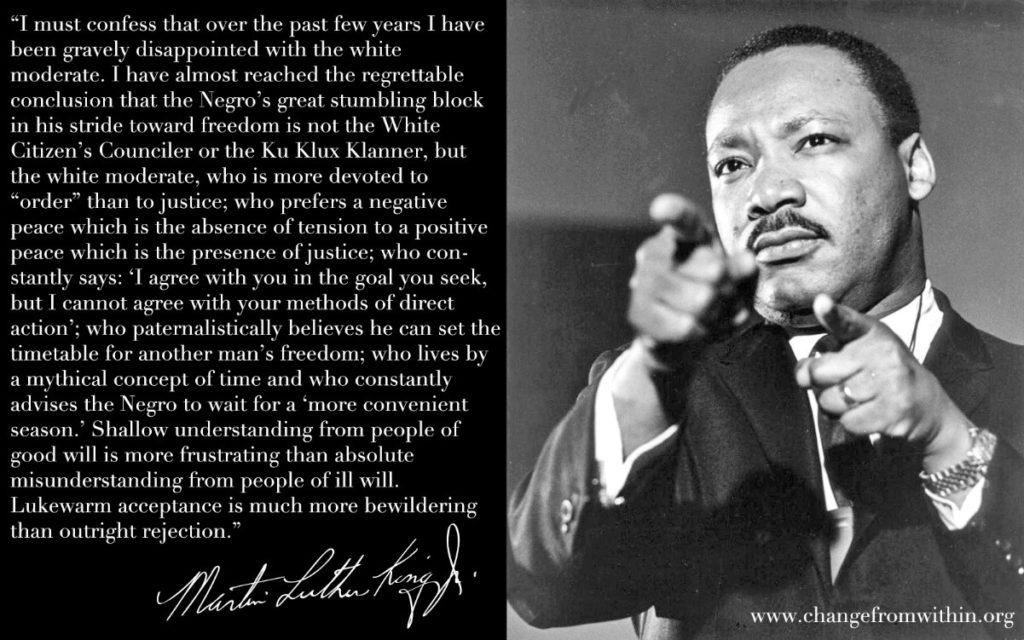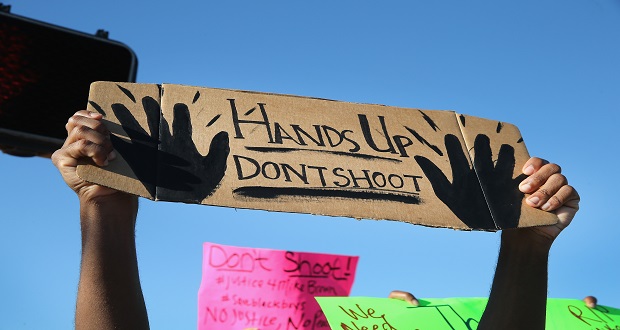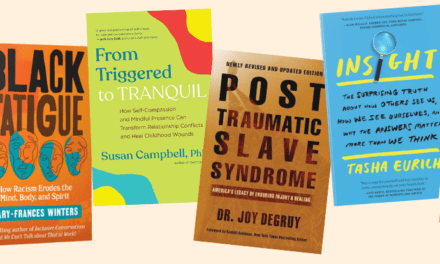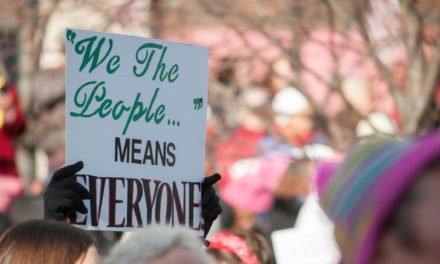
Every year in the U.S., people from various stripes scramble to showcase their favorite Martin Luther King Jr. quotes to honor his legacy and the national holiday. And every year, it is clear that people, largely across race and political party, have widely different conceptions of who MLK was, and what he was all about.
On one side, we read quotes that highlight King’s life-long pursuit of racial harmony and brotherhood—almost always referencing the line that we not judge based on the color of skin but on the content of character. On the other, there is usually a more holistic emphasis on King’s thought and action that emphasize economic injustice and racial disparity. These differences in emphasis beg the question of whether there were two MLKs. But the reality is that MLK’s life and thoughts, when taken as a whole, do not fit neatly into each side’s political agenda or moral compass. In fact, what made King so influential, in his day and ours, is his complex and holistic approach to issues of racial harmony and fighting injustice. And what makes King’s life and work especially relevant today is that this tendency to either highlight our similarities or differences is still alive and well in the way different races view and interact with each other.
This trend is evident in the contemporary use of the “Black Lives Matter” and “All Lives Matter” rhetoric. The former, emphasizing differences and inequality as the starting place for more racial equity. The latter, deemphasizing racial differences as the starting place for racial harmony. But aside from the various ways these phrases have taken on a life of their own, and how people use them in conversations to support their respective views, King’s legacy invites us to see how both sentiments are true-albeit in distinct and important ways. Although King dedicated his life to building cross-racial coalitions and racial harmony, he never did it at the expense of the truth or by watering down stark differences in racial equity. He was loud and clear about economic, national, religious, and racial disparities in power—and called out those who attempted to silence his message or ignored it all together from their privileged place on the sidelines.
As I read, listened, and reflected on King’s work this week the message that struck me as particularly relevant for our time was his words on the white silent majority. This quote, in particular, has stuck with me this week:

What’s so striking is that before these words, King was beaten, stabbed, bombed, and harassed by the FBI, yet he said the greatest stumbling block to justice was not white violence, but white silence. Even more troubling is how applicable these words still are today around issues of racial justice. In the several Black Lives Matter events I’ve attended, I’ve seen signs with the slogan, “white silence is violence” that clearly communicate the same message. As I reflect on these words and how I, as a white male, can be a better voice for justice, I will end with several considerations for how white people (and all of us) can combat the allure of silence in our lives and organizations.
- Inner Silence: Being “loud” about issues of justice starts in the conversation in our minds. Before we engage with others around issues of racial injustice, especially if we’re not informed, we must first ask ourselves whether or not we have done enough listening to others to fully understand the issues. Second, we must be loud to ourselves about our own biases and how we see the world through our limited perspectives, asking ourselves, “what is it that I don’t know, that I don’t know.” A sign of growth in being more culturally competent is embracing tension that we have around issues we don’t understand, rather than silently ignoring or dismissing them.
- Silence with Others: The world is a big, colorful place. But many of us spend a lot of time in spaces with people more similar to us. And this means that being loud about racial injustice means different things for different people, depending on our place in life and our respective social worlds. It is easy in our relationships to be silent about differences and focus on similarities, especially if we feel disconnected from issues we don’t understand. But we should follow King’s example that the path to racial harmony is not in ignoring our differences, but by addressing, understanding and embracing them head on—“without justice there can be no peace” (MLK). There is great reward, and possible sacrifice, in being loud about issues of justice in our personal relationships. This can happen over shared meals, in what we share, like, and post on social media, and the way we listen to diverse others in our lives. It’s a healthy reminder that racial solidarity, if not shown, cannot be assumed. Being silent is violent, because it allows more dangerous voices to be amplified in our place. And complicity on racial justice issues is just as harmful as explicit forms of violence—the end result is the same.
- Silence in the World: Although we have the most influence over our own thoughts and our relationships with others, we all make some difference in the nature of our world. We affect change in our society at large with our votes, what we read, and where we spend our money. It is in these larger arenas that we make our voices heard to the world about where we stand on issues of racial justice. There is a great opportunity to support minority owned business, expand our mind through diverse movies and music, and cast our votes to affect change that may or may not even affect our racial group.


















